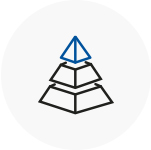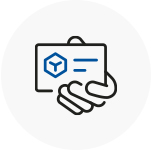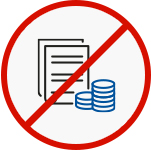CONFLICT MINERALS
Daewoo trucks complies with international regulations on conflict minerals,
proving goods and services through transparent sourcing of goods and materials from non-conflict regions.
TATA DAEWOO
Summary of Conflict Minerals Issue
Conflict Minerals refer to the so-called “3TG” minerals including Tin, Tantalum, Tungsten and Gold that come from conflict-ridden areas of the world such as Democratic Republic of the Congo and adjoining countries.
Rebels and armed groups in the region use profits from trading the minerals to fund violent activities against civilians and spark civil wars. Their actions constitute a crime against humanity as they include child labor and forced labor in the mine, civilian massacre, and violence against women.
In an effort to end the conflict by limiting funding sources of the armed groups, the US Congress established a law in 2010, making it mandatory for companies to report their use of conflict materials (Dodd-frank Wall Street Reform and Consumer Protection Act.) Section 1502 of the law requires companies listed in the US to inquire into their use of conflict materials, the origin of minerals supplied to them, and minerals with suspected links to conflict, and to report to US Securities and Exchange Commission on the results of the inquiry.
Tata Daewoo Commercial Vehicle is subjected to the law as its parent company Tata Motors Limited (TML) is a US-listed company.
Commitment to Sourcing Responsibility
Tata Daewoo Commercial Vehicle Limited (“TDCV”) is committed to sourcing products and materials from companies that share its values around human rights, ethics and environmental responsibility. Consistent with the spirit of related laws, rules and regulations regarding responsible sourcing and conflict minerals, including those promulgated under U.S. law, TDCV is committed to sourcing minerals in a responsible manner.
TDCV supports laws which aim to prevent the use of Conflict Minerals that directly or indirectly finance or benefit armed groups in the Democratic Republic of the Congo (“DRC”) or other covered countries1. “Conflict Minerals” include: columbite-tantalite (also known as coltan), cassiterite, gold and wolframite and their derivatives, being tantalum, tin and tungsten, and any other minerals specified from time to time.
Tata Daewoo Commercial Vehicle Limited Supplier Expectations

-
Establishment and implementation of supply chain due diligence procedures
TDCV requires its suppliers to engage in due diligence of their supply chains in accordance with an internationally recognized framework, such as the OECD Due Diligence Guidance for Responsible Supply Chains of Minerals from Conflict-Affected and High-Risk Areas.

-
Encouragement of material sourcing from certified conflict-free smelters
TDCV requires its suppliers to understand and report the source of the materials constituting their parts supplied to TDCV. Further, TDCV encourages its suppliers to source responsibly with certified conflict-free smelters, wherever possible, to increase TDCV’s level of confidence that the parts in its vehicles are sourced responsibly.

-
Effort to trace the exact origin of conflict minerals
Suppliers currently sourcing minerals with suspected links to the covered countries may continue to do so as long as they continue to exhibit efforts to trace the exact origin of Conflict Minerals used in the components supplied to TDCV.

-
Elimination of commercial procurement of products containing conflict minerals from covered countries
Elimination of procurement, as and when commercially practical, of products containing Conflict Minerals obtained from sources that fund or support armed conflict in the covered countries.
TDCV may reconsider its willingness to partner with suppliers that fail to comply with this Conflict Minerals Policy.
Suppliers and other external parties are encouraged to contact TML at conflictMinerals@tatamotors.com, if they wish to seek guidance on this Conflict Minerals Policy or report concerns.
1Covered countries are defined under Section 1502 of the Dodd-Frank Wall Street Reform and Consumer Protection Act of 2010 to include the Democratic Republic of the Congo, Angola, Burundi, Central African Republic, the Republic of the Congo, Rwanda, South Sudan, Tanzania, Uganda and Zambia.
